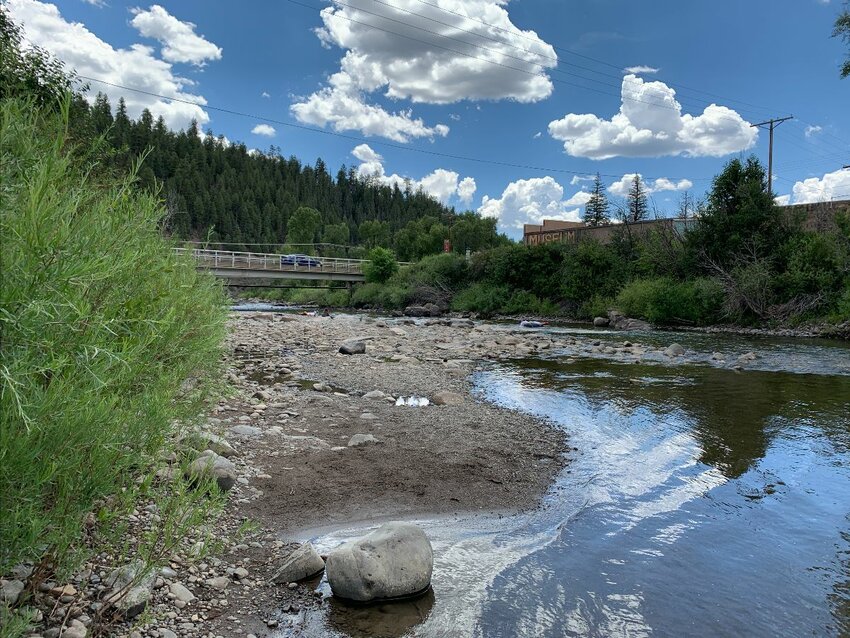
Photo courtesy John Livingston/CPW
With low water levels and water temperatures consistently rising above 71 degrees, Colorado Parks and Wildlife has enacted a voluntary afternoon fishing closure for the San Juan River through Pagosa Springs, the Animas River through Durango and the Dolores River below McPhee Reservoir.
Temperatures in these rivers have regularly risen above 71 degrees in the last week and stream flows are below 50% of daily average. This puts extra stress on fish, and anglers may find it difficult to safely release fish that are caught.
These voluntary fishing closures are in effect immediately and in place daily from noon to midnight.
“I liken it to how nobody wants to be exercising outdoors when it’s over 100 degrees outside,” said CPW aquatic biologist Jim White. “That’s kind of the same thing we’re imposing on these fish when folks are fishing when the water temperatures are that hot. When you’re yanking them out, it’s hot and stressful. Alleviating that stress on the fish population is good practice.”
White said conditions on the lower Dolores River below McPhee Reservoir are especially hard on fish with water levels only an estimated 33% of normal. The Animas River has hit 72 degrees at times in the last week and has remained above 65 degrees even late at night.
Like the Animas River in Durango, fish in the San Juan River through Pagosa Springs also receive the additional stress of recreational river tubing added to higher temperatures and low levels.
White thanked the fishing community in southwest Colorado, as many anglers have already started to self impose these closures in recent days.
“We certainly have an educated angling community,” White said. “Most people are willing to refrain from angling in the hot afternoons. It’s a matter of educating some more people and our out-of-town visitors to also help these fisheries out.”
White said anglers should fish early to avoid the higher water temperatures commonly seen in the afternoon and seek out high-elevation trout lakes and streams where water temperatures are more suitable.
CPW aquatic biologists will regularly monitor temperatures on the rivers in the coming weeks to let anglers know when conditions have improved.
Anglers should be aware of changing conditions at Colorado’s rivers and streams. For the latest conditions related to mandatory and voluntary fishing closures, go to https://cpw.state.co.us/thingstodo/Pages/StatewideFishingConditions.aspx.